 DE
DE- Industries
- Finance
Nearshore software development for finance—secure, scalable, and compliant solutions for banking, payments, and APIs.
- Retail
Retail software development services—e-commerce, POS, logistics, and AI-driven personalization from nearshore engineering teams.
- Manufacturing
Nearshore manufacturing software development—ERP systems, IoT platforms, and automation tools to optimize industrial operations.
- Finance
- What we do
- Services
- Software modernization services
- Cloud solutions
- AI – Artificial intelligence
- Idea validation & Product development services
- Digital solutions
- Integration for digital ecosystems
- A11y – Accessibility
- QA – Test development
- Technologies
- Front-end
- Back-end
- DevOps & CI/CD
- Cloud
- Mobile
- Collaboration models
- Collaboration models
Explore collaboration models customized to your specific needs: Complete nearshoring teams, Local heroes from partners with the nearshoring team, or Mixed tech teams with partners.
- Way of work
Through close collaboration with your business, we create customized solutions aligned with your specific requirements, resulting in sustainable outcomes.
- Collaboration models
- Services
- About Us
- Who we are
We are a full-service nearshoring provider for digital software products, uniquely positioned as a high-quality partner with native-speaking local experts, perfectly aligned with your business needs.
- Meet our team
ProductDock’s experienced team proficient in modern technologies and tools, boasts 15 years of successful projects, collaborating with prominent companies.
- Why nearshoring
Elevate your business efficiently with our premium full-service software development services that blend nearshore and local expertise to support you throughout your digital product journey.
- Who we are
- Our work
- Career
- Life at ProductDock
We’re all about fostering teamwork, creativity, and empowerment within our team of over 120 incredibly talented experts in modern technologies.
- Open positions
Do you enjoy working on exciting projects and feel rewarded when those efforts are successful? If so, we’d like you to join our team.
- Hiring guide
How we choose our crew members? We think of you as a member of our crew. We are happy to share our process with you!
- Rookie boot camp internship
Start your IT journey with Rookie boot camp, our paid internship program where students and graduates build skills, gain confidence, and get real-world experience.
- Life at ProductDock
- Newsroom
- News
Stay engaged with our most recent updates and releases, ensuring you are always up-to-date with the latest developments in the dynamic world of ProductDock.
- Events
Expand your expertise through networking with like-minded individuals and engaging in knowledge-sharing sessions at our upcoming events.
- News
- Blog
- Get in touch
05. Jun 2025 •5 minutes read
Stockholm’s retail technology & e-commerce Expo – a melting pot for innovative service providers
by ProductDock
Stockholm, Sweden [May 14+15, 2025]
ProductDock visited the Retail Technology and e-Commerce Expo 2025 in Stockholm/ Sweden. This event combined three major fairs into one, making it one of the largest of its kind in Sweden. It offers retailers a platform to present their products and services, while also showcasing their technological achievements. Key focus areas this year included AI, particularly AI Agents, and Cybersecurity. Over 5000 visitors, 150 speakers, and exhibitors gathered to exchange knowledge and discuss the future of commerce and retail technology.
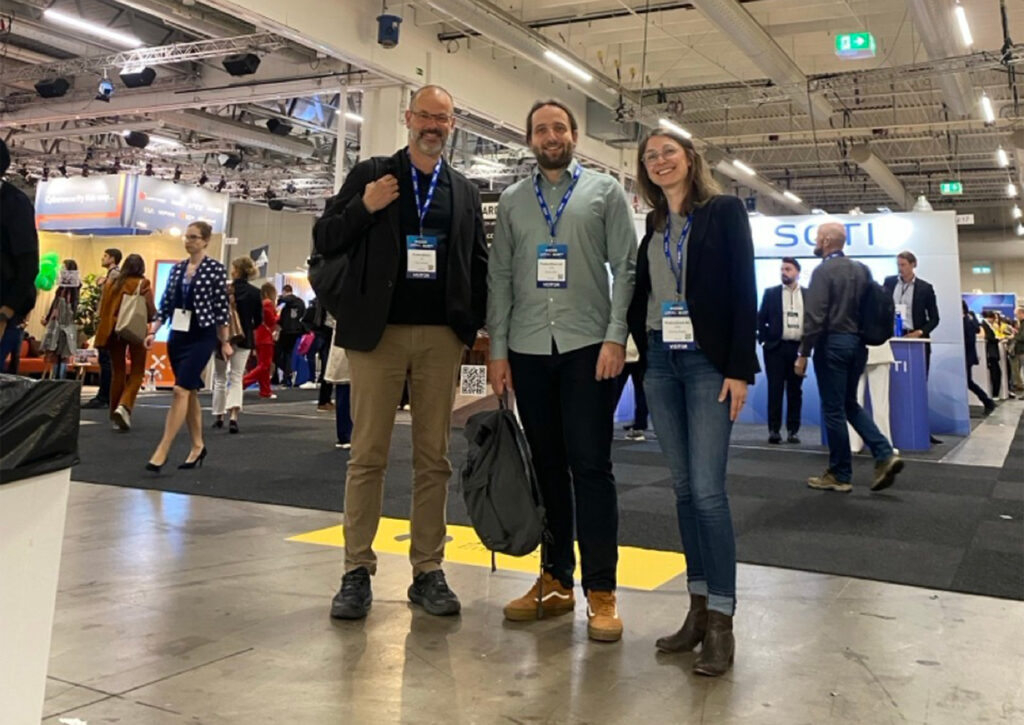
The attendees came from diverse industries: We met hardware companies developing satellite phones, providing server infrastructure, cashierless store solutions, and service companies such as trustvoice, a customer rating network, and Infobip, a marketing platform that takes care of securing omnichannel messaging for end consumers. We also spoke to the payment provider mollie, a European alternative to Stripe, which was one of the few companies that did not promote their most recent AI feature, but they assured us it’s coming soon! 🙂
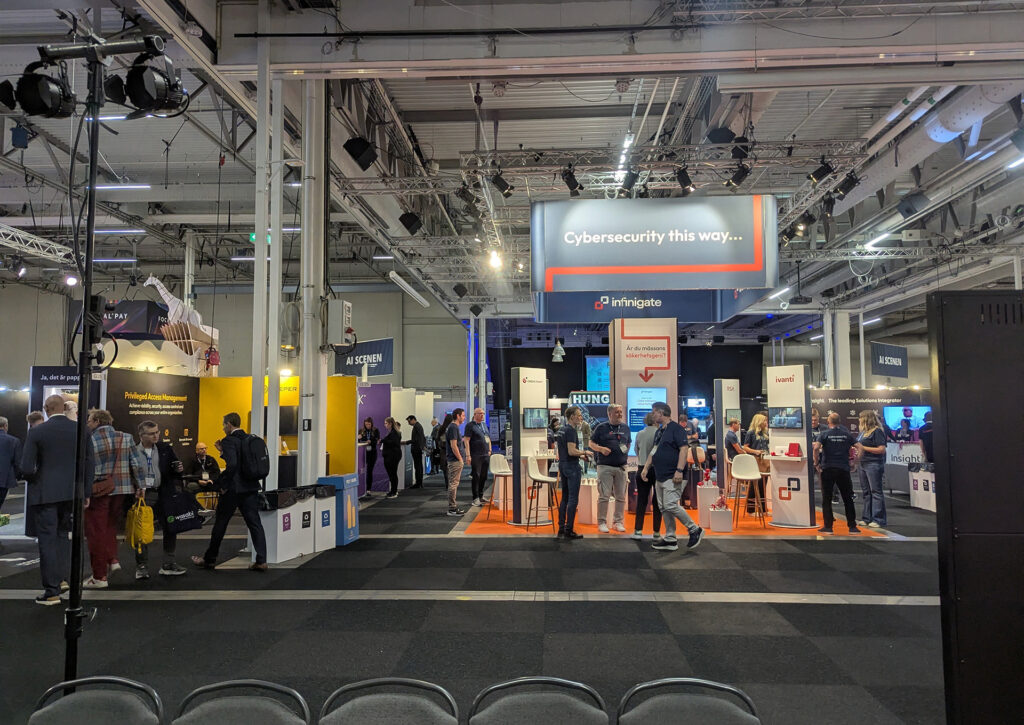
These are our key takeaways from the event:
The world met in Sweden
The Swedish market is both diverse and international. We met companies from across the Nordic countries – some operating exclusively locally, while many offer their services on a global scale. Sweden’s tech economy has strong relationships with Ukraine and Macedonia which even had collective booths at the event. Many of the companies we spoke with operate delivery centers in countries like India, Croatia, and other nearshore or offshore locations. Others are strictly looking for talent in-house due to the sensitivity of intellectual property. That was especially true for banks, or smaller companies, which can build and run their software with just a few engineers.
AI became a commodity
Everyone is using AI in some way, and the focus has shifted to finding valuable, real-world problems it can solve. As AI-generated Proof of Concept (PoCs) can now be created in minutes, the conversation is evolving toward Proof of Value (PoV). In the end, it’s not about building something technically impressive – it’s about delivering tangible, scalable value for the business.
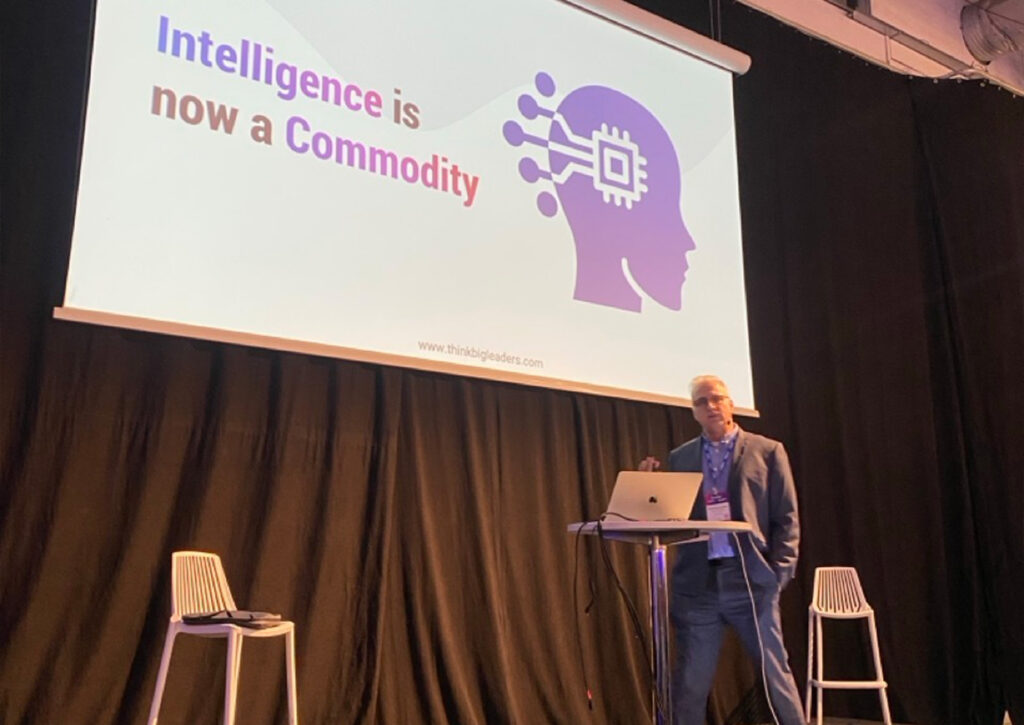
We learned about the laundry challenge that disrupts the way we used to approach prototyping, introduced by one of the speakers. The idea is simple yet disruptive: every time he waits 45 minutes for his laundry to finish, he builds a prototype using platforms such as Lovable, Claude, or similar AI tools. It’s a fun but powerful reminder of how accessible and fast prototyping has become with modern AI.
Despite these creative applications, one of the most impactful and promising uses of AI is still expected to be in the medical sector, where it could revolutionize diagnostics, patient care, and operating efficiency.
Resilience is king
Cybersecurity as the second focus topic of the fair connected security with AI. We learned from Anu Kukar (Partner – Cyber, Deloitte) that resilience is the most important word in that area at the moment, and that AI is perfect for detecting unusual behaviour. Threads like unrecognised editing and changing of data could be recognised by AI easily, e.g. if the balance in your bank account had been changed by intruders.
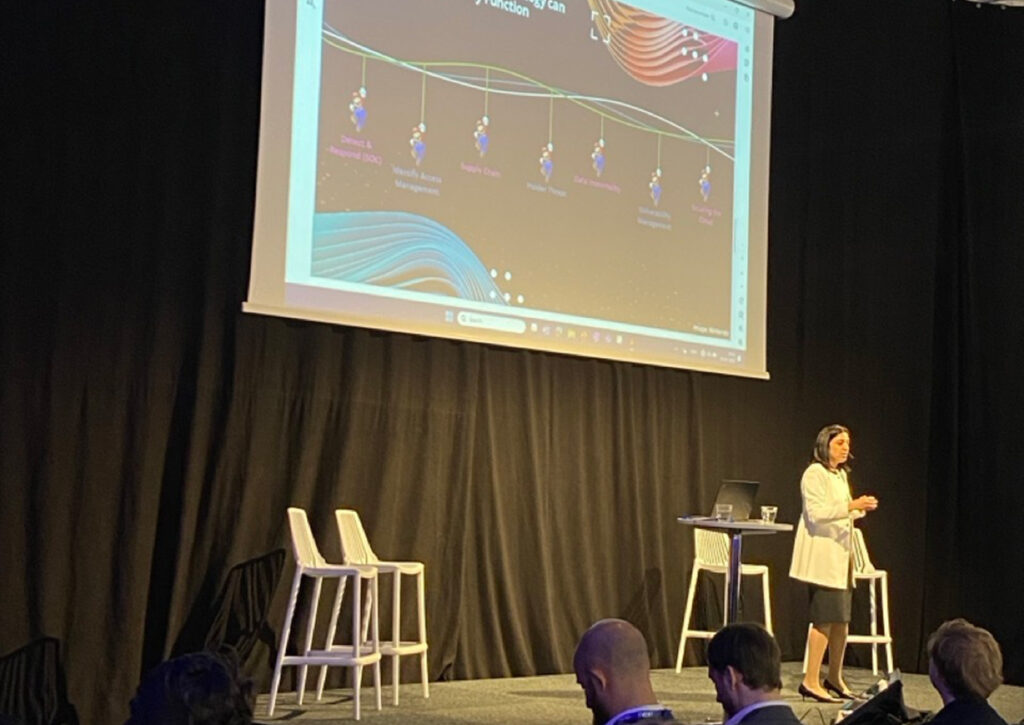
Time to adapt to cyber security
We heard that we should rethink how we sell security services. The example was vivid:
Imagine you’d sell cars like security services. You’d offer a car, but you need to add on all safety features, and tell the client: “Here is the belt, a simple one included in the price. But here, you can get a much safer premium belt. You can buy it and install it”.
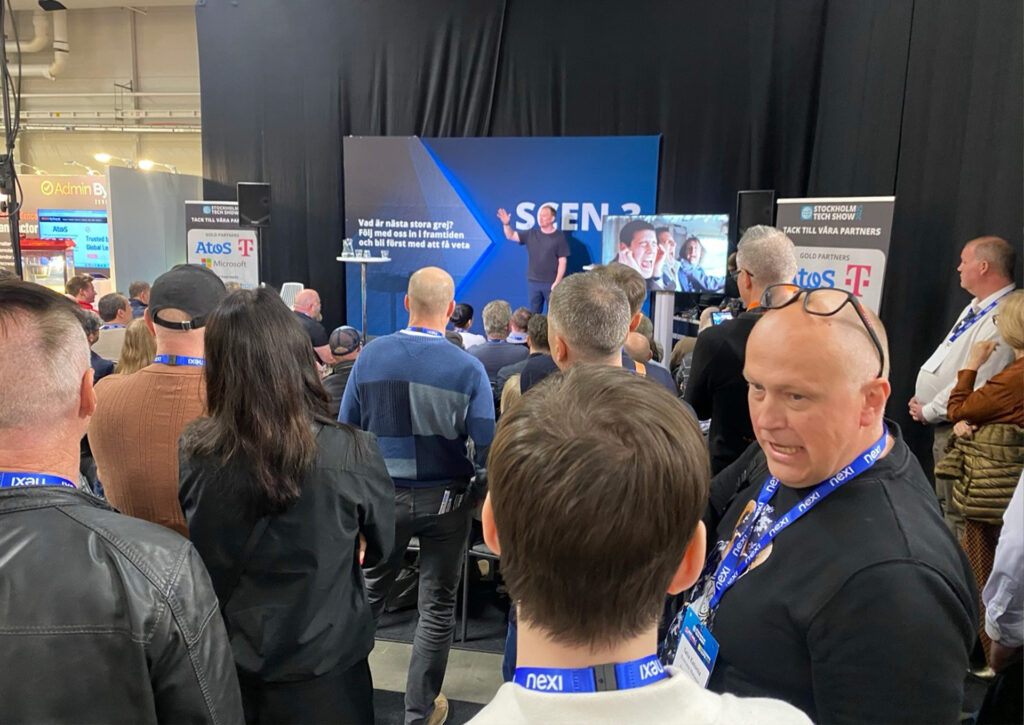
And then you leave the customer alone. This approach would barely succeed, and it certainly doesn’t make anyone more secure. The way we use IT at the moment has been around for about 20 years as a mass product. Look at the car industries: car belts weren’t introduced until about five decades after cars became mainstream. Therefore, security shouldn’t just be enforced, people need to adapt to technology. We enforce two factor authentication, but unless people understand how to use it effectively and why it matters, it won’t deliver its full potential.
Bringing a bank into the cloud and AI area
Morteza Kalhour, Chief Architect at Resurs Bank, explained what ingredients are needed to migrate services of a bank from on premise to cloud in just 4 months. He emphasized that a comprehensive leadership is mandatory, deep knowledge is king and that you need talented people working with domain experts. Last but not least, having the right technical foundation is essential to transform the core banking systems, and integrate AI in all layers of business and IT.
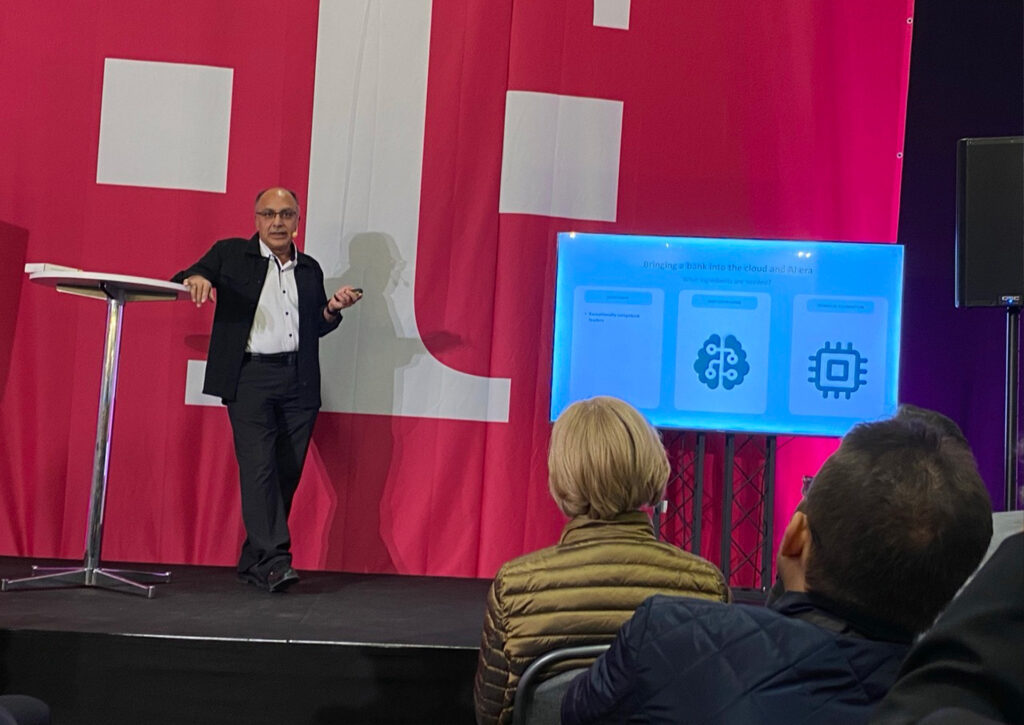
Google’s AI Universe
Ted Schönbeck, CTO at Google Nordics, spoke on the topic “Generative AI – from hype to high-impact business transformation” and gave insights about new models and achievements. For example, weather forecasting has improved significantly – predictions can now extend up to 10 days, compared to just a few days previously. Google’s AlphaFold is accelerating medical research by enabling faster and more accurate protein folding calculations, helping scientists better understand diseases and develop new treatments. Moreover, Ted also highlighted how AI agents can be built easily using Google cloud infrastructure in all kinds of areas such as employee productivity, customer support, data analysis and code generation.
The cost of LLMs decreased for almost all AI models while the quality was stable or improved.
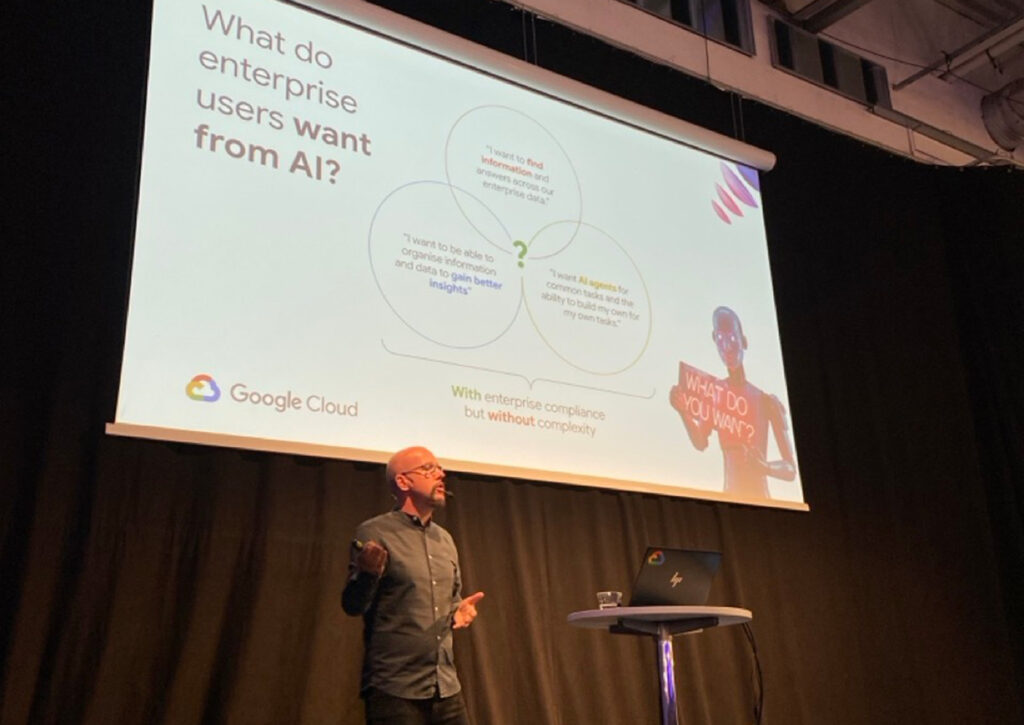
Which is good, as Google’s customer research revealed that enterprises have three core needs that should be covered by AI:
- Easier access to information
- Deeper insights from their data
- AI agents to handle routine tasks
As a final showcase, he highlighted the Vertex AI platform and presented a striking AI-generated Vans commercial via Veo 2, Google’s video generator model.
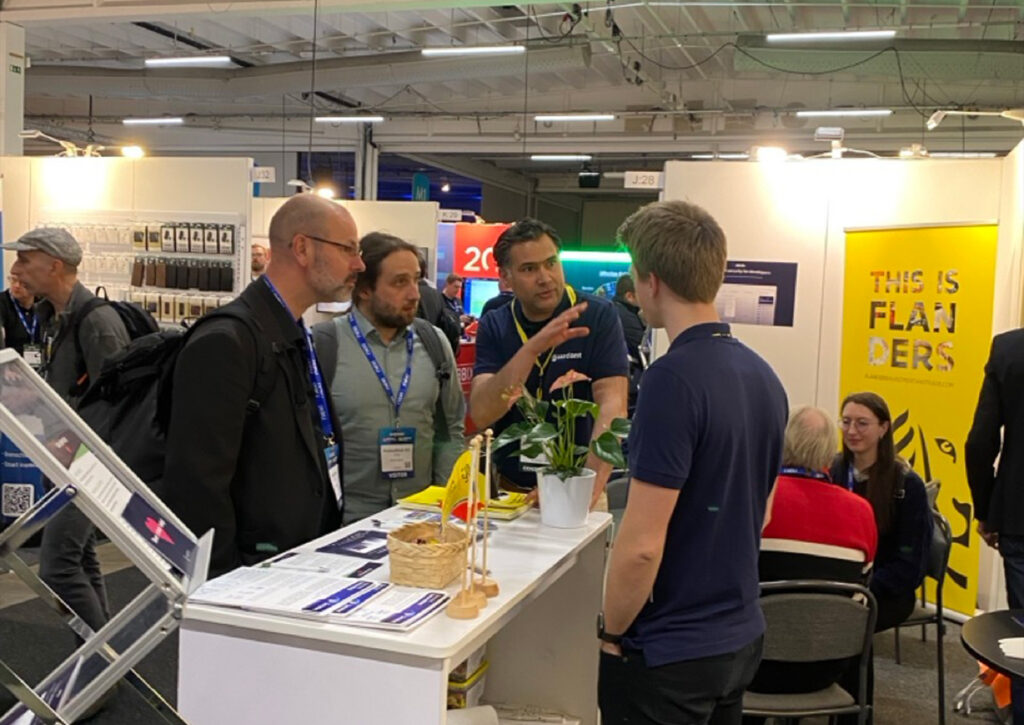
Finally, Jovica asked the question on many minds: Is Google really worried that AI search platforms might eat their search engine for breakfast? Ted laughed and replied “Of course not – and of course, you Google with Gemini.”
Overall, the expo confirmed that the Swedish retail scene is vibrant, forward-thinking, and eager to leverage AI and cybersecurity for real-world impact. It’s a market full of opportunity – for those ready to adapt, evolve, and deliver real value through technology.